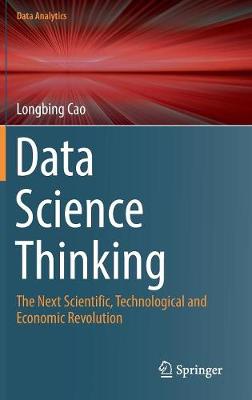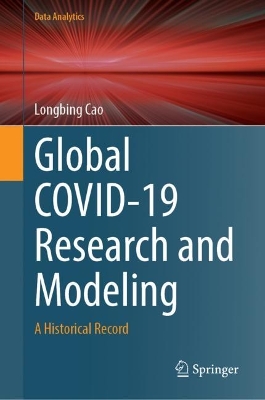Data Analytics
2 total works
This book explores answers to the fundamental questions driving the research, innovation and practices of the latest revolution in scientific, technological and economic development: how does data science transform existing science, technology, industry, economy, profession and education? How does one remain competitive in the data science field? What is responsible for shaping the mindset and skillset of data scientists?
Data Science Thinking paints a comprehensive picture of data science as a new scientific paradigm from the scientific evolution perspective, as data science thinking from the scientific-thinking perspective, as a trans-disciplinary science from the disciplinary perspective, and as a new profession and economy from the business perspective.
This book provides answers to fundamental and challenging questions regarding the global response to COVID-19. It creates a historical record of COVID-19 research conducted over the four years of the pandemic, with a focus on how researchers have responded, quantified, and modeled COVID-19 problems. Since mid-2021, we have diligently monitored and analyzed global scientific efforts in tackling COVID-19. Our comprehensive global endeavor involves collecting, processing, analyzing, and discovering COVID-19 related scientific literature in English since January 2020. This provides insights into how scientists across disciplines and almost every country and regions have fought against COVID-19. Additionally, we explore the quantification of COVID-19 problems and impacts through mathematics, AI, machine learning, data science, epidemiology, and domain knowledge. The book reports findings on publication quantities, impacts, collaborations, and correlations with the economy and infections globally, regionally, and country-wide. These results represent the first and only holistic and systematic studies aimed at scientifically understanding, quantifying, and containing the pandemic. We hope this comprehensive analysis will contribute to better preparedness, response, and management of future emergencies and inspire further research in infectious diseases. The book also serves as a valuable resource for research policy, funding management authorities, researchers, policy makers, and funding bodies involved in infectious disease management, public health, and emergency resilience.

